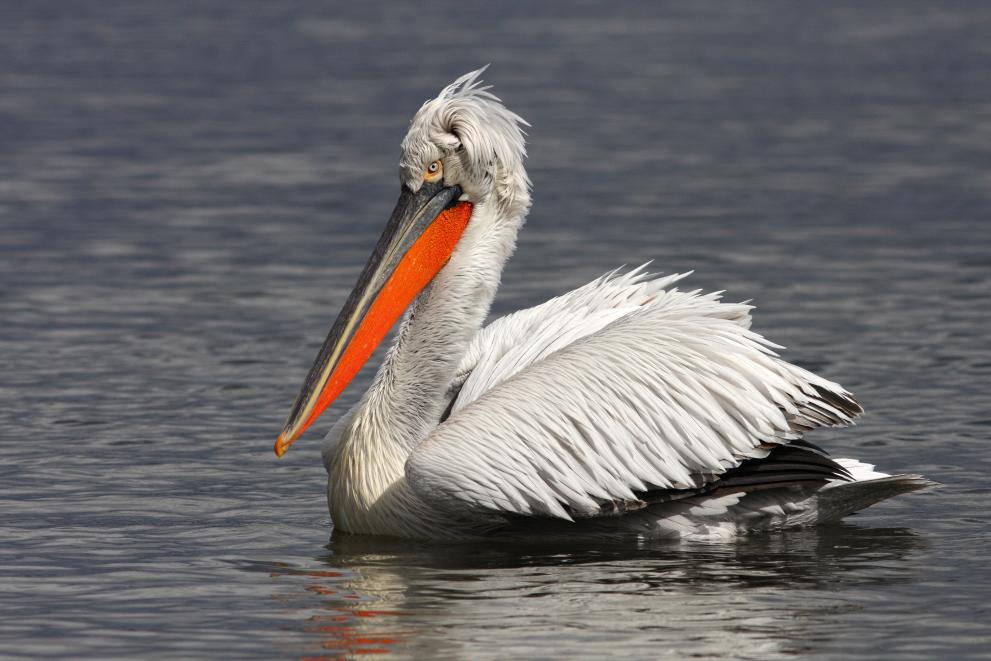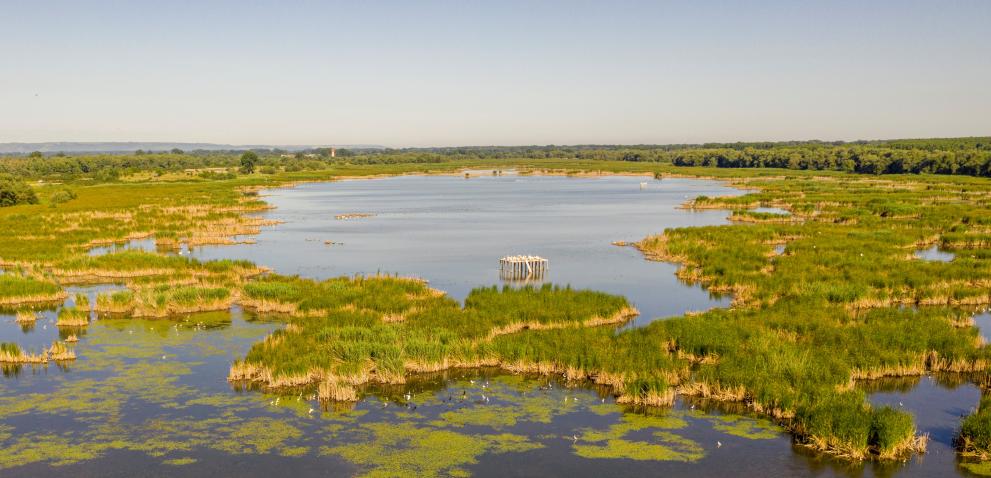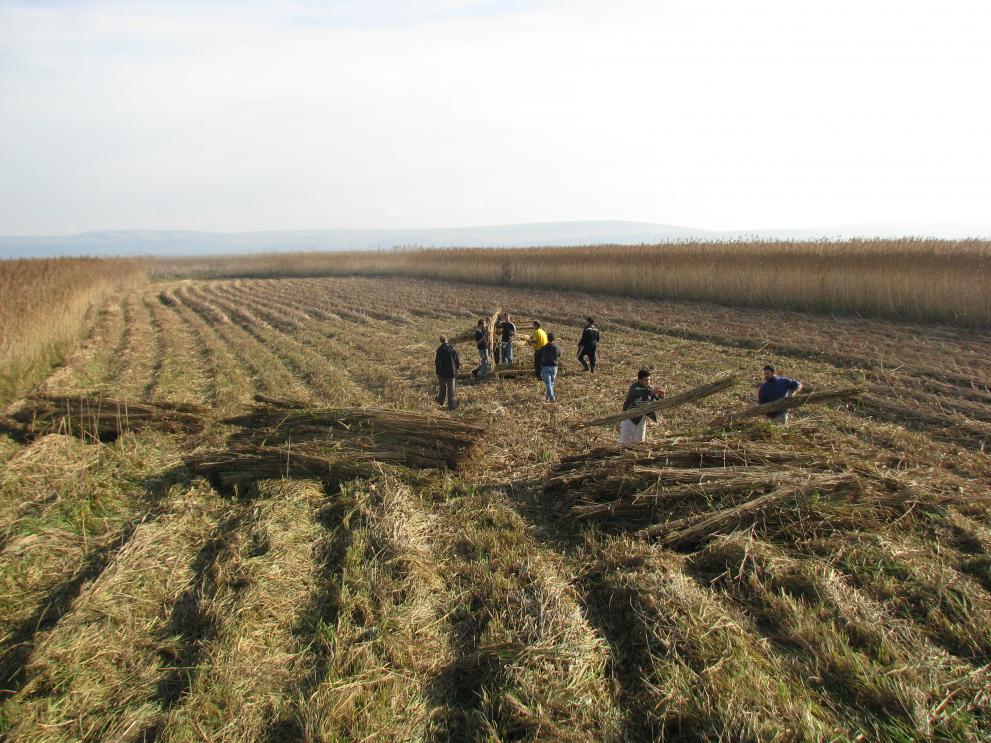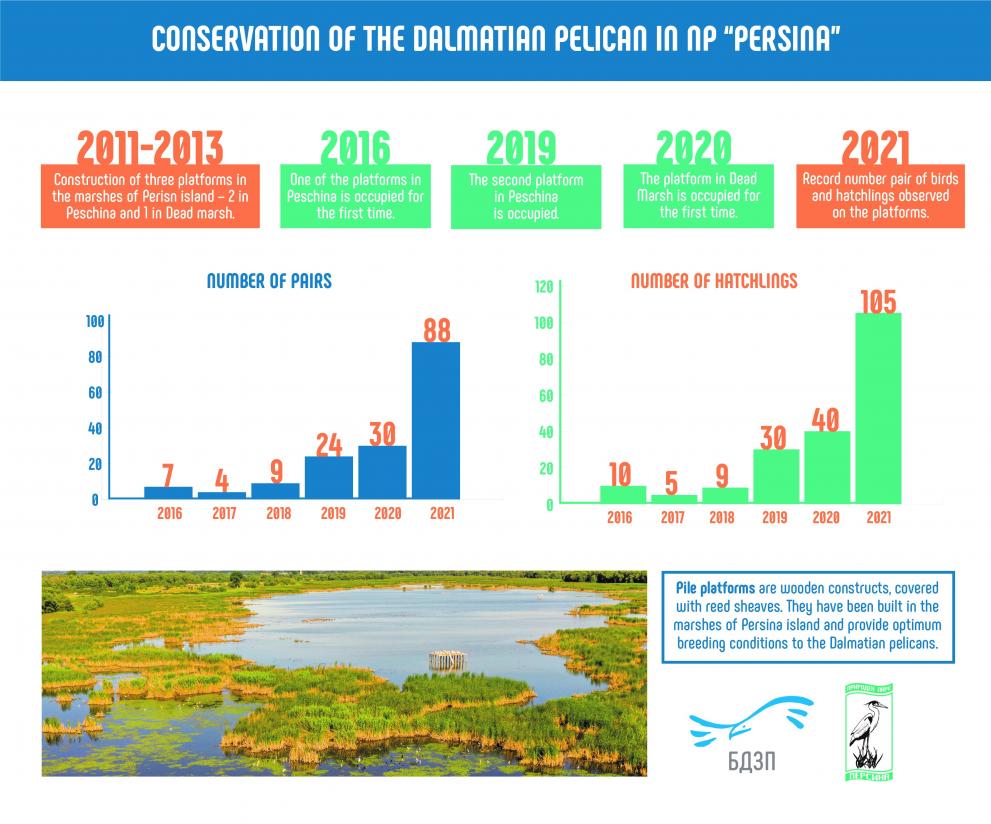
Long-term investments and efforts paid off in this project which used artificial breeding platforms and innovative decoy pelicans to double the number of Dalmatian pelicans in Bulgaria, and create three new stable breeding colonies after 60 years of absence from the region.
About the project
- Main applicant
Bulgarian Society for the Protection of Birds (BirdLife Bulgaria)
- Category
Conservation on land
- Countries involved
Bulgaria
- Main N2000 site
Kompleks Belenski ostrovi (BG0002017)
The Dalmatian pelican (Pelecanus crispus) is the rarest member of the pelican family, breeding in just three EU countries. Two populations are considered stable (at Lake Kerkini in Greece and in the Danube Delta in Romania). However, the Bulgarian population had only 80 breeding pairs in one colony and was much less secure. It was also restricted to one place (Srebarna Lake) because of the destruction of the vast floodplains where the species would originally have bred.
The Code Name Pelican initiative of the Bulgarian Society for the Protection of Birds (BSPB), in cooperation with the Directorate of the Persina Nature Park, started back in 2012 and focused on restoring the Lower Danube wetland ecosystem, epitomised by the Dalmatian pelican. At this time, the first breeding platforms were erected at the Kompleks Belenski ostrovi Natura 2000 site with the attempt to mitigate the loss of natural breeding habitat (the Lower Danube flood plains). After numerous attempts to make the artificial platforms attractive to the pelicans, the first breeding pairs were recorded in 2016 and eventually the persistence of the team was richly rewarded with the establishment of two breeding colonies of the Dalmatian pelican at Peschina Marsh and Martvoto Marsh.
In 2019, the BSPB, as a partrner in the Pelican Way of LIFE, funded by the EU LIFE programme, enlarged the geographic scope and in 2021 tested the globally innovative idea of using decoy pelicans to encourage establishment of breeding pairs. A dedicated platform was built and decoys placed at the Kompleks Kalimok Natura 2000 site and was immediately successful – a third Dalmatian pelican colony was established.
Thus, after more than 60 years of absence from the region, the BSPB was able to announce the return of the pelicans to the two sites. By 2021, the new breeding sites counted 91 breeding pairs, doubling the number of birds in Bulgaria and located in three stable populations.

Protecting pelicans in the Lower Danube - video 
Protecting pelicans in the Lower Danube - Photo 1Svilen Cheshmedzhiev - BSPB Protecting pelicans in the Lower Danube - Photo 2Svilen Cheshmedzhiev - BSPB 
Protecting pelicans in the Lower Danube - Photo 3Peschina Marsh - Yavor Michev 
Protecting pelicans in the Lower Danube - Photo 4Emil Todorov 
Protecting pelicans in the Lower Danube - Photo 5BSPB
